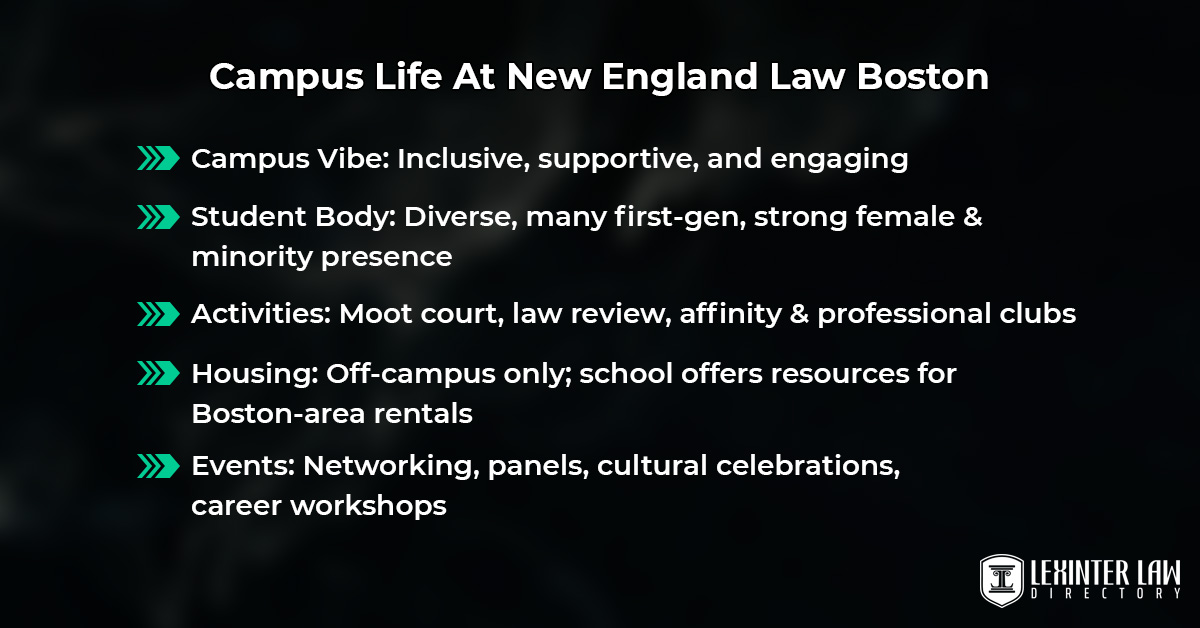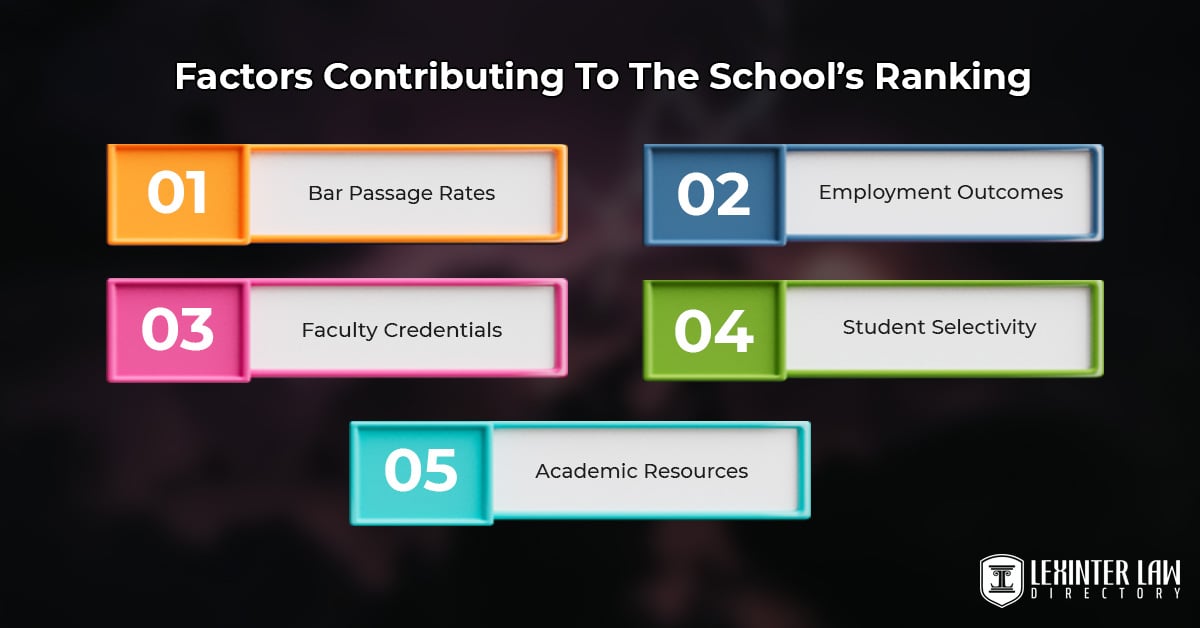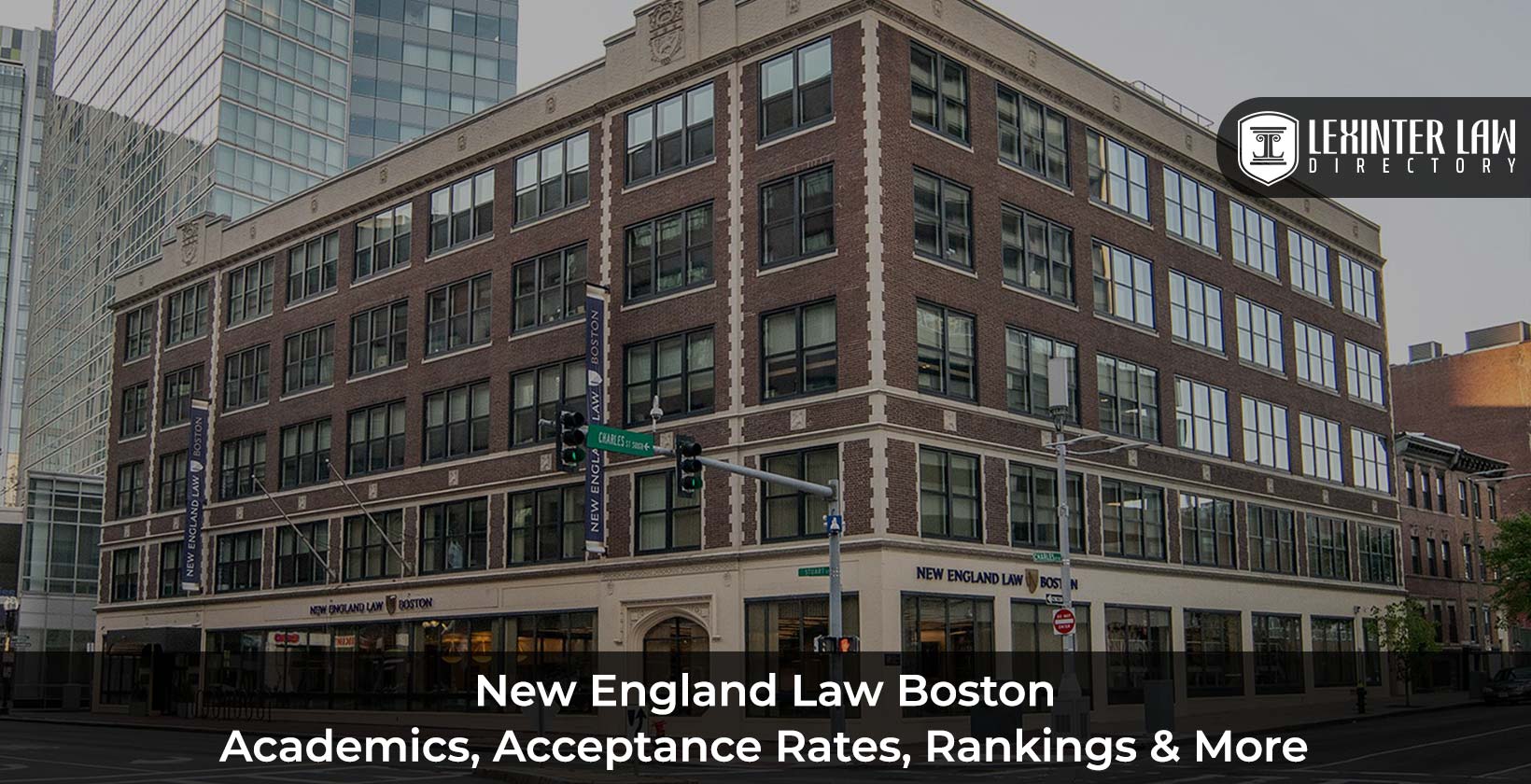New England Law Boston: Academics, Acceptance Rates, Rankings & More
In the heart of Boston’s vibrant legal and cultural landscape stands a law school with a legacy of excellence and a forward-looking mission—New England Law | Boston. Known for its rigorous academics, personalized attention, and strong commitment to practical training, this institution offers more than just a degree—it offers a gateway to a meaningful legal career.
From its historic downtown campus to its influential alumni and immersive clinical programs, New England Law prepares students to lead with purpose. Whether you’re aspiring to practice law locally or globally, this school could be the beginning of your legal journey.
Table of Contents
Location And Campus
New England Law | Boston is strategically located in downtown Boston, offering students immediate access to the city’s legal, governmental, and cultural institutions. The urban setting creates a dynamic, real-world environment for legal study and professional growth.
Address Of New England Law Boston
New England Law is located at 154 Stuart Street, Boston, MA 02116, in the heart of the city’s Theatre District. This central location places students just minutes from courthouses, law firms, public agencies, and transit hubs—making commuting convenient and networking opportunities abundant throughout Boston’s vibrant legal and civic landscape.
Description Of The Campus And Its Facilities
New England Law’s campus blends historic architecture with modern amenities. The Stuart Street Building houses classrooms, a comprehensive law library, faculty offices, and a moot courtroom. Additional facilities include the Center for Law and Social Responsibility, student lounges, a fitness center, and academic support services, all designed to enhance the student learning and wellness experience.
Nearby Attractions And Amenities
Students enjoy proximity to Boston Common, Faneuil Hall, and the Public Garden—perfect for study breaks or weekend exploring. Transit access is excellent, with several MBTA lines nearby. The neighborhood also offers a variety of cafes, restaurants, bookstores, and cultural venues that contribute to a vibrant academic and social lifestyle.
Campus Life

New England Law | Boston fosters an engaging, inclusive campus environment where students balance rigorous academics with vibrant social, cultural, and professional experiences. The supportive atmosphere encourages connection, collaboration, and personal development both inside and outside the classroom.
Student Demographics
The student body comprises individuals from diverse geographic, cultural, and professional backgrounds, contributing to a rich educational environment. Many are first-generation law students, and a significant portion are women and underrepresented minorities, creating a dynamic, inclusive community that reflects the complexities and diversity of the broader legal profession.
Extracurricular Activities And Organizations
Students at New England Law participate in a variety of student-run organizations, including moot court, law review, affinity groups, and professional interest clubs. These groups foster leadership, community involvement, and career development while offering platforms to explore legal specialties and connect with faculty, peers, alumni, and the greater legal community.
Housing Options And Accommodations
While the school does not offer on-campus housing, students have access to a wide range of off-campus options throughout Boston. Popular neighborhoods include Back Bay, Fenway, and Allston. The school offers housing resources and support to help students find convenient and affordable accommodations that suit their lifestyles, budgets, and commuting preferences.
Social And Cultural Events
The law school hosts a full calendar of events throughout the academic year, including networking receptions, public interest panels, cultural celebrations, and professional workshops. These events foster community, highlight diversity, and connect students with legal professionals, alumni, and community leaders in a dynamic and engaging extracurricular environment.
Academic Programs
New England Law | Boston offers a comprehensive and practice-oriented legal education. Through a range of degree programs, clinics, and specialty tracks, students gain the doctrinal knowledge and real-world skills needed for today’s legal careers.
Overview Of Academic Programs And Degrees Offered
The school offers a Juris Doctor (JD) as its primary degree, along with an LLM in American Law for international attorneys. Students can pursue certificate programs in areas like criminal law and intellectual property, or participate in dual-degree programs with local universities. Part-time, evening, and summer courses provide flexible scheduling options.
Highlighted Faculty Members And Their Expertise
Faculty at New England Law bring deep legal knowledge and practical experience to the classroom. Professors include former judges, Supreme Court advocates, and thought leaders in constitutional, criminal, and international law. Their mentorship, research, and real-world insights enrich the academic environment and support student success beyond graduation.
Notable Alumni And Their Achievements
Graduates of New England Law hold prominent roles in government, private practice, and public interest sectors. Alumni include Karyn Polito, former Lieutenant Governor of Massachusetts, and Maria Stephan, an expert in international conflict resolution. Their accomplishments reflect the school’s commitment to developing ethical, impactful leaders in the legal field.
Acceptance Rate And Admissions
New England Law | Boston maintains a moderately selective admissions process, emphasizing academic credentials and potential for legal practice. The school seeks applicants who demonstrate strong analytical skills, commitment to justice, and readiness for rigorous legal training.
Current Acceptance Rate Statistics
For the 2024–2025 academic year, New England Law | Boston received 3,393 applications and extended offers to 2,588 candidates, resulting in an acceptance rate of 76.27%. The median LSAT score for admitted students was 153, with a 25th–75th percentile range of 149–157. The median undergraduate GPA stood at 3.31, ranging from 2.95 to 3.58.
Admission Requirements And Procedures
Applicants must submit their applications through the Law School Admission Council (LSAC) platform. Required materials include a valid LSAT score, official undergraduate transcripts, a personal statement, a resume, and two letters of recommendation. The application deadline for Fall 2025 enrollment is May 1, 2025. Notably, there is no application fee.
Tips For Prospective Students On Improving Their Chances
Strengthening your application involves more than just meeting requirements—it’s about presenting a well-rounded profile that reflects your academic potential, personal motivation, and alignment with the school’s mission. Consider the following strategies to enhance your candidacy:
- Prepare Thoroughly for the LSAT: Aim to achieve a score at or above the median to enhance competitiveness.
- Craft a Compelling Personal Statement: Articulate your motivations for pursuing law and how your experiences align with the school’s values.
- Secure Strong Letters of Recommendation: Choose recommenders who can provide detailed insights into your academic and professional capabilities.
- Maintain a Solid Academic Record: A strong undergraduate GPA reflects your readiness for rigorous legal studies.
- Engage with the Admissions Office: Attend information sessions or reach out with thoughtful questions to demonstrate genuine interest.
How To Apply
Applying to New England Law | Boston is a straightforward process designed to be accessible and applicant-friendly. Prospective students should follow these essential steps to ensure their application is complete, accurate, and submitted on time:
- Create an LSAC Account: Begin by registering on the LSAC website.
- Complete the Application: Fill out the JD application for New England Law | Boston via the LSAC portal.
- Submit Required Documents: Include your LSAT score, official transcripts, personal statement, résumé, and two letters of recommendation.
- Application Deadline: Please ensure that all materials are submitted by May 1 for consideration for fall admission.
- No Application Fee: Applying to New England Law | Boston is free of charge.
Rankings And Reputation
New England Law Boston holds a respected position among law schools, recognized for its commitment to practical legal education and its strong presence in specialized areas of law. The school’s emphasis on experiential learning and community engagement contributes to its solid reputation.
Recent Ranking Of New England Law Boston
In the 2025 U.S. News & World Report rankings, New England Law Boston is ranked #166 among the top law schools in the United States (tie) and #54 for Part-Time Law Programs (tie). These positions reflect the school’s growing recognition for its accessible, flexible legal education, particularly for students balancing academics with professional commitments.
Factors Contributing To The School’s Ranking

The school’s ranking is influenced by various factors that assess its academic quality and the outcomes of its graduates.
- Bar Passage Rates: The percentage of graduates passing the bar exam on their first attempt.
- Employment Outcomes: Graduate employment rates in legal positions shortly after graduation.
- Faculty Credentials: Qualifications and scholarly impact of the teaching staff.
- Student Selectivity: Median LSAT scores and undergraduate GPAs of incoming students.
- Academic Resources: Availability of legal research materials and student support services.
How Rankings Can Impact A Student’s Education And Career
Rankings can be a big deal. While rankings provide a general sense of a school’s reputation, they should be one of many factors considered when choosing a law school. A school’s specific programs, faculty expertise, location, and alumni network can significantly influence educational experiences and career opportunities, sometimes outweighing its position in national rankings.
Scholarships And Financial Aid
New England Law Boston is committed to making legal education accessible and affordable. The school offers a variety of scholarships and financial aid options to support students throughout their academic journey.
Available Scholarships And Financial Aid Options
New England Law Boston provides several merit-based scholarships, including the Justice Sandra Day O’Connor Honors Program, which offers full-tuition awards to eligible students.
All admitted students are automatically considered for merit scholarships during the admissions process. In addition to scholarships, the school offers federal loans, veterans’ education benefits, and federal work-study programs to assist with educational expenses.
How To Apply For Scholarships?
To apply for scholarships at New England Law Boston, applicants should:
- Submit the JD Application: Complete the application through the LSAC portal.
- Provide Required Documents: Include LSAT scores, official transcripts, a personal statement, résumé, and two letters of recommendation.
- Complete the FAFSA: Fill out the Free Application for Federal Student Aid (FAFSA) to be considered for federal aid programs.
- Meet Deadlines: Ensure the specified deadlines are met by submitting all materials to maximize scholarship and aid opportunities.
Career Opportunities And Alumni Success
New England Law Boston equips students with the tools and support necessary to launch successful and meaningful legal careers. Through structured guidance, real-world experience, and a strong alumni network, graduates are well-prepared for diverse professional pathways in law.
Career Services And Opportunities For Students
Among the best law schools. The Career Services Office offers tailored career counseling, résumé reviews, mock interviews, and job search strategies. Students gain access to job fairs, employer networking events, and a robust job database. The office also supports internships, judicial clerkships, and public interest placements to strengthen real-world legal skills and post-graduate employment prospects.
Notable Career Paths Of New England Law Boston Graduates
Graduates have secured roles in private practice, government, judiciary, corporate counsel offices, and public interest law. Many become trial attorneys, legal analysts, or compliance officers. Alumni also serve as state legislators, nonprofit leaders, and federal prosecutors, reflecting the school’s commitment to cultivating ethical, service-oriented legal professionals in a wide range of sectors.
Alumni Networks And Their Significance
New England Law’s alumni network spans all 50 states and numerous international jurisdictions. Alumni frequently return to campus to mentor students, conduct mock interviews, and offer externship placements. These connections provide valuable career insight, industry referrals, and long-term professional relationships that support both early and seasoned legal careers.
Frequently Asked Questions About The New England Law Boston
1. What Is New England Law Boston Known For?
New England Law | Boston is known for its strong emphasis on practical legal training, inclusive academic environment, and dedicated faculty. The school offers extensive clinical programs, evening courses, and a supportive community, making it a standout choice for students seeking flexibility and real-world legal experience.
2. Is New England Law Boston A Good School?
Yes, New England Law | Boston is a respected institution offering a solid legal education, particularly for students seeking practical experience and personalized attention. Its accessible admissions, strong clinical programs, and supportive faculty make it a good choice for those pursuing diverse legal career paths.
3. How Hard Is It To Get Into New England Law Boston?
New England Law Boston is a moderately competitive institution, with an acceptance rate of approximately 76%. Applicants typically present a median LSAT score of 153 and a GPA of 3.31. While accessible, strong academic credentials and a compelling personal statement are important to strengthen admission chances.
Conclusion
New England Law Boston stands out for its commitment to practical training, an inclusive academic environment, and strategic downtown location. With accessible admissions, diverse programs, and a supportive community, it equips students with the tools to thrive in various legal fields.
Whether pursuing full-time or part-time study, students benefit from hands-on experiences, dedicated faculty, and a strong alumni network. For those seeking a well-rounded, career-focused legal education in a vibrant city, this institution offers a compelling and rewarding path forward.

